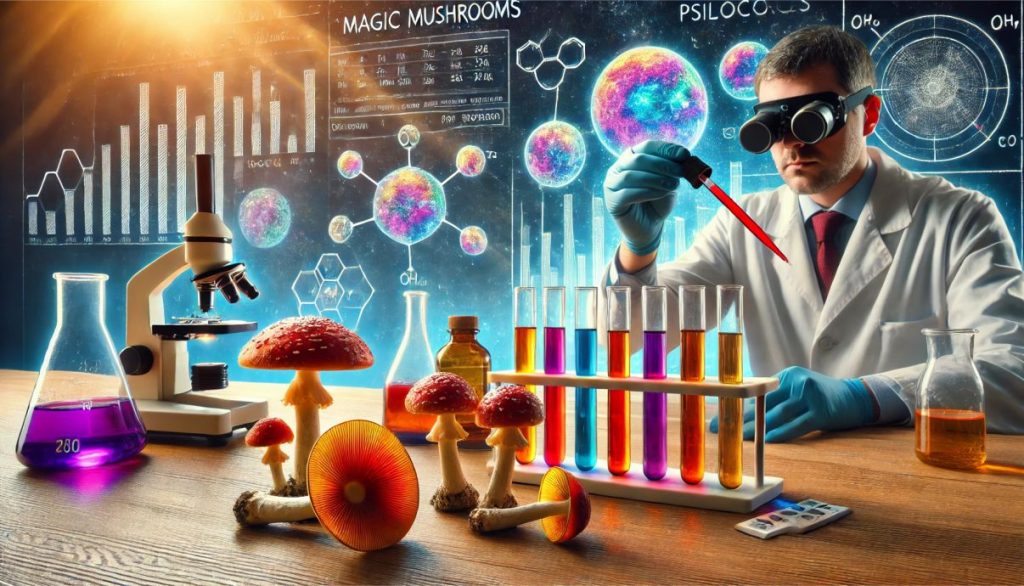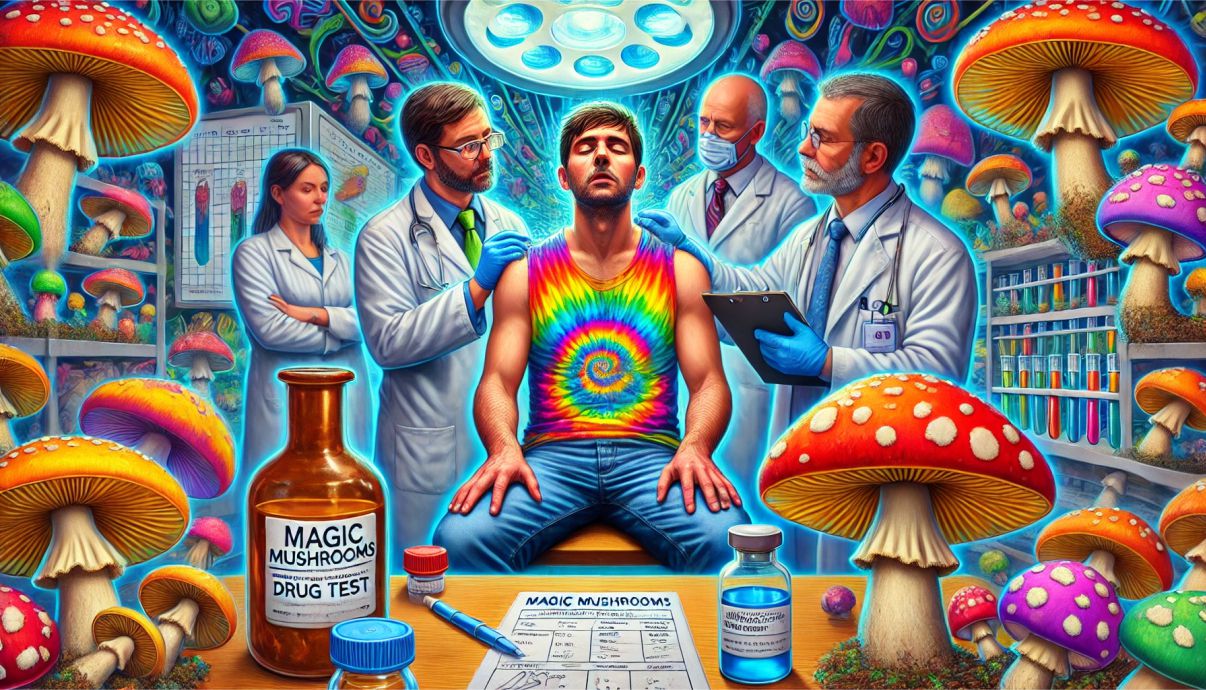Curious about how magic mushrooms might show up on a drug test? This guide breaks down everything you need to know. This post has you covered, whether you’re facing routine testing or just want to stay informed.
What You Need to Know About Magic Mushrooms Drug Test
Table of Contents
If you’re curious about magic mushrooms and how they might show up on a drug test, you’re not alone. Whether you’re concerned about workplace drug testing or simply interested in understanding the science behind it, this post will dive deep into the connection between magic mushroom drug tests and what it all means for you.
Do Drug Tests Detect Magic Mushrooms?
While many standard drug panel tests focus on substances like marijuana, cocaine, and opiates, psilocybin mushrooms—the active ingredient in magic mushrooms—often require more specific testing methods.
How Different Drug Tests Work
Each type of drug test has its own method of detection and timeframe for identifying psilocybin or other substances. In specific situations, individuals may need to undergo hallucinogen tests, as standard drug tests typically do not include shrooms.
Urine Tests: The Most Common Method
Urine tests are the most common type of drug testing, often used for routine drug tests and workplace drug testing. They detect drugs by identifying metabolites in the urine, including any trace amounts of psilocybin that might be present.
Blood or Saliva Tests: Less Common But Effective
Blood or saliva tests are less commonly used but are effective in detecting psilocybin shortly after ingestion. These tests are typically used when there is a need to determine recent drug use.
Hair Follicle Tests: Long-Term Detection
Hair follicle tests are unique because they detect drug use over a longer period, sometimes up to 90 days. This type of testing might detect psilocybin or other hallucinogens long after the effects have worn off.
Specialized Tests for Magic Mushrooms
In certain scenarios, specialized drug tests may be used to specifically target psilocybin and other hallucinogens. These specialized tests are more detailed and are not typically part of routine testing but may be used in cases of suspected substance abuse or in federally regulated programs. In such cases, the tests involved might focus on detecting the active compounds of psilocybin mushrooms rather than just their metabolites.
Factors That Influence Drug Test Results
The outcome of a drug test depends on numerous factors, many of which are related to how your body processes substances. Here are some key considerations:
- Body Composition: Your metabolism, body fat, and overall health may affect how long psilocybin and psilocin remain in your system.
- Dose and Individual Factors: The amount of psilocybin you consume, along with your personal tolerance level and frequency of use, will influence detection times.
- Body Breaks Down Compounds: The way your body breaks down psilocybin into psilocin and then eliminates these compounds differs from person to person.
- Preparation Method: Whether you’ve ingested fresh shrooms or dried ones, and the method of consumption, could also impact how long these substances are detectable.
When Magic Mushrooms Might Show Up on a Drug Test
Although standard drug tests may not detect psilocybin, there are specific drug tests designed to find the compounds in magic mushrooms. A mushroom drug test may involve specific timing and methods to detect psilocybin. These specialized tests are not commonly used but may be employed in certain situations, such as:
- Workplace drug testing in safety-sensitive industries
- Federally regulated programs
- Hallucinogen tests in cases of suspected drug abuse
These tests may involve urine tests, blood tests, or saliva tests that are specifically looking for psilocybin or its metabolites. Additionally, hallucinogenic mushrooms might be detected if specialized drug tests are conducted.

How Long Do Magic Mushrooms Stay in Your System?
While it’s true that the effects of magic mushrooms typically wear off within a few hours, the metabolites of psilocybin (the active compound) may remain detectable in the body for longer than previously thought.
Here’s a more accurate breakdown:
- Urine tests: Psilocybin metabolites may be detected in urine for up to 3-4 days after consumption.
- Hair tests: These are more sensitive and could detect psilocybin metabolites for up to
90 days. - Blood tests: While less common for drug screenings, psilocybin may be detected in blood for a shorter period, typically 1-2 days.
Factors influencing detection time include:
- Dosage: Higher doses may lead to longer detection times.
- Metabolism: Individual metabolic rates vary.
- Drug test sensitivity: The specific test used may also affect detection.
Final Thoughts: Navigating Magic Mushrooms and Drug Testing
At Hallucinogenics, we’re dedicated to providing accurate, up-to-date information on all things related to psilocybin mushrooms. We understand the importance of responsible use and staying informed about the implications of magic mushroom use.
As you continue your experiences with magic mushrooms, remember that knowledge is your best ally. If you ever have any questions or need further guidance, the Hallucinogenics team is always here to help. Let’s continue to explore, learn, and grow—together.
FAQs About Magic Mushrooms and Drug Testing
Now that we’ve covered the basics of magic mushrooms and drug tests, you might still have some lingering questions. Let’s answer some of them
Do Employers Test for Magic Mushrooms During Workplace Drug Testing?
In most cases, workplace drug testing focuses on substances that are more commonly abused, such as marijuana or opioids. Magic mushrooms are not typically included in these tests. However, in some specialized industries or jobs, there might be more comprehensive drug testing that includes hallucinogens, particularly if there is concern about substance abuse or safety-sensitive work.
What Should I Do If I’m Worried About a Drug Test After Using Magic Mushrooms?
If you’re concerned about an upcoming drug test after using magic mushrooms, the best course of action is to understand the specific type of drug test that will be used. If it’s a routine drug test, the likelihood of detection is low unless the test is designed specifically to detect hallucinogens. If you’re unsure, consulting with a healthcare provider or legal professional should provide additional guidance based on your situation.
Are There Any Legal Consequences for Testing Positive for Magic Mushrooms?
Testing positive for psilocybin mushrooms may have different legal consequences depending on the context. In employment settings, a positive test could result in job termination, especially if drug testing is part of a federally regulated program or if your role involves safety-sensitive duties. In legal situations, a positive test could potentially lead to charges related to drug abuse or other legal repercussions, depending on local laws. In Canada, magic mushrooms are illegal but considered decriminalized, meaning they are not being actively prosecuted. It is not uncommon to find stores selling them without issues.



